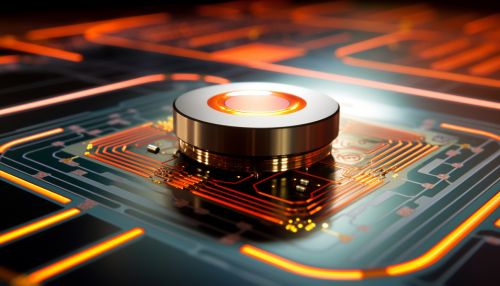Advances in Quantum Computing with Single Electron Transistors
Introduction
Quantum computing represents a significant leap in the field of computation, promising to solve problems that are currently intractable for classical computers. A key component in the development of quantum computers is the quantum transistor, a device that can control the flow of a single electron. This article will delve into the advances in quantum computing with single electron transistors, exploring the principles, applications, and future prospects of this technology.


Single Electron Transistors
A single electron transistor (SET) is a type of transistor that can control the transfer of a single electron. The operation of SETs is based on the Coulomb blockade effect, which prevents the flow of electrons due to the repulsive force of their charges. This property allows SETs to operate at extremely low power levels, making them ideal for applications in quantum computing.
Quantum Computing
Quantum computing is a computational paradigm that leverages the principles of quantum mechanics to process information. Unlike classical computers that use bits to represent data as 0s and 1s, quantum computers use quantum bits (qubits) that can exist in multiple states simultaneously. This property, known as superposition, coupled with quantum entanglement, allows quantum computers to perform complex calculations at an exponentially faster rate than classical computers.
Single Electron Transistors in Quantum Computing
Single electron transistors play a crucial role in the development of quantum computers. Their ability to control the flow of a single electron makes them ideal for the creation of qubits. Furthermore, their low power consumption and high sensitivity to electric fields make them suitable for quantum error correction, a critical aspect of quantum computing.


Advances in Quantum Computing with Single Electron Transistors
The use of single electron transistors in quantum computing has led to several advancements. These include the development of quantum gates that can manipulate qubits, the creation of scalable quantum computing architectures, and the improvement of quantum error correction techniques.
Future Prospects
The future of quantum computing with single electron transistors looks promising. As researchers continue to refine the design and operation of SETs, we can expect to see further improvements in the performance and scalability of quantum computers. Additionally, the development of new materials and fabrication techniques could lead to the creation of more efficient and robust quantum transistors.
